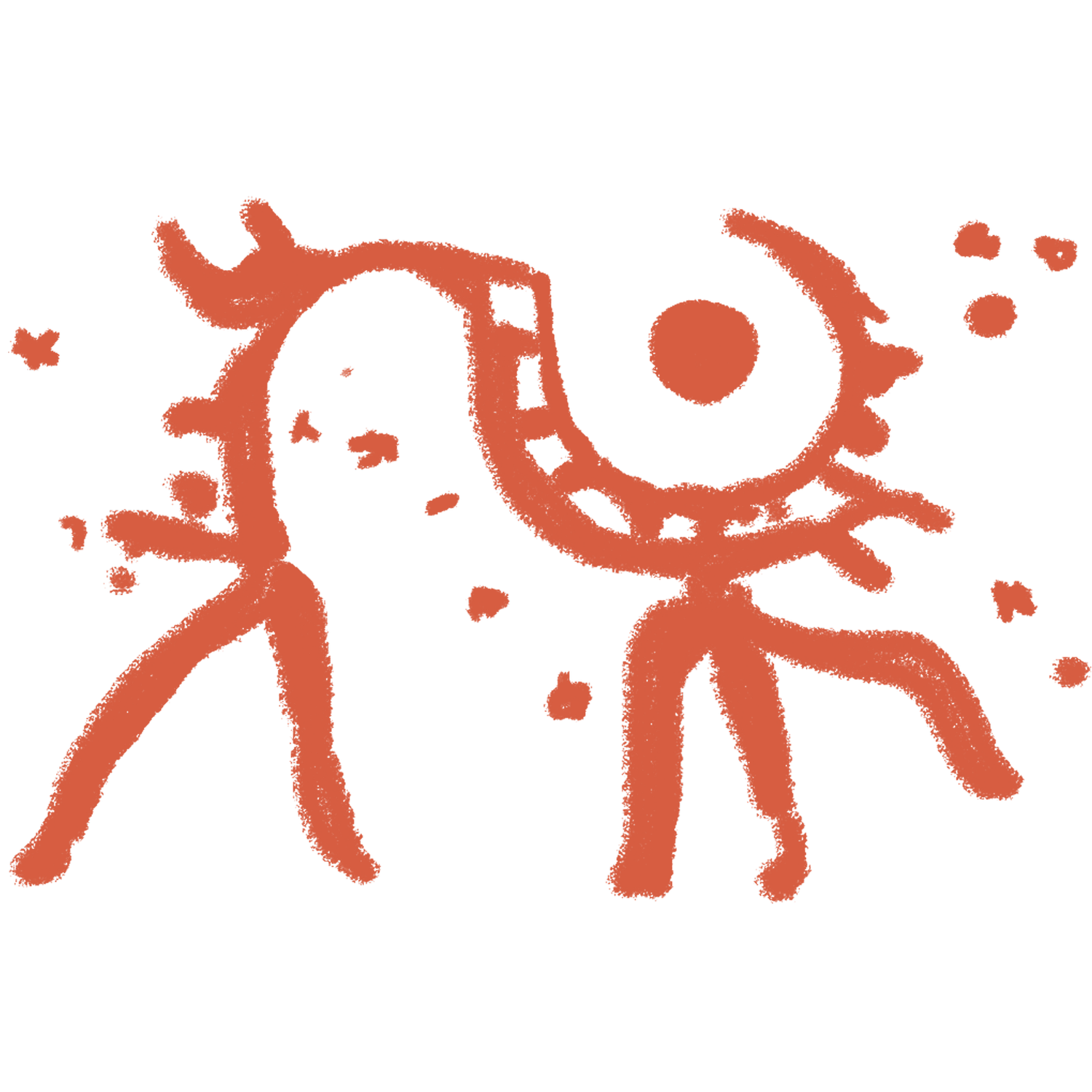
November 19, 2025
Reading the cosmos
Thinking in action about understanding a place from the perspective of the Epistemologies of the South
About the course
Learn to reframe the way we see the world in today’s globalized context, and to rethink how peasant, traditional, Indigenous, and rooted societies place themselves within it.
This workshop does not view precarity as modern progress labels it, but as a space of dignity, creativity, and resourcefulness — where people reclaim their lives and territories while caring for and nourishing them.
A workshop on ecological and intercultural thinking and action, it invites us to understand that the Earth’s ecological processes, together with our thoughts and practices, constitute our cosmos. We draw on the ideas and actions of the communities of Abya Yala, Cemanáhuac, and Isla Tortuga — endonyms used in different regions of the American continent — as well as on insights from ethnography and agroecology to engage in dialogue with the knowledge of rooted communities.
This course brings together both the research and the lived experience of previous editions of this workshop, as well as lessons from other projects and learning processes in social ecology.
The pedagogy of Expresiones
This is a pedagogical project that tries to weave learnings with people’s everyday lives.
It is not only a theoretical and practical workshop, but we will re-understand how theory and practice are two words to talk about the same thing. This is what we call Action Thinking (AP).
In addition, it is very important that the whole curriculum has a meaningful meaning in the students' lives and within their own sense of who we are. For this reason we have a learning pillar that we call Self-Awareness (SA).
The workshop is threaded through seminar-like sessions where the facilitator exposes ideas, academic reflections, and encourages individual curiosity to open dialogues with the participants.
Some of the activities that you can find in the workshop are:
Lectures
Meditation
Writing and dialogues for reflection
Didactic exercises to learn about ethnography
learning-by-doing exercises
Who is it for?
Cooks, students, researchers, mothers and fathers, promoters, administrators, social workers, agriculturists, traders etc.
This workshop is aimed at anyone who works with food and seeks to generate diverse, critical and shared perspectives to better understand food systems, agave and mezcal.
Is you have interest in the following subjects this workshop is for you:
Degrowth
Permaculture
Regenerative thinking and design
Alternative epistemologies
Indigenous thought
What you’ll learn
Peasant and indigenous narratives about individuals, landscape and transforming a place
Strategies to recognize hegemonic narratives and methods to reframe systems of values
Practical forms to read a farm, forest or city and its socioecological capacities in terms of atmosphere and geography.
Design strategies to connect with your own territory through collective action.
-
Culture, environment and cosmos
Biocultural memory
Environmental history as more-than-human history
Mindfulness
-
Narratives on indigenous cognition
The poetics of feeling-thinking
Environmental affectivity
Mind-body-territory
-
Deep attetion
Ecology 101
System thinking principles
Ecological journailing
-
Landscape as process
Reading landscape units
Traditional Ecological Knowledge and applications
Watershed perspective
Compassion narratives
-
Referencias bibliográficas para el curso desde La Isla Tortuga, Abya Yala, Cemanáhuac, América Latina:
La memoria biocultural de Toledo y Barrera-Bassols
Cuerpo, cosmos y medio ambiente de Pierre Beaucage
La filosofía Náhuatl estudiada desde sus fuentes de León Portilla
Indigenous Storywork: educating the heart, mind, body and spirit de Jo-Ann Archibald
El retorno a la naturaleza: apuntes sobre cosmovisión Amazónica desde los Quechua de Grimaldo Rengifo Vázquez
Land as Pedagogy de Leanne Betasamosake Simpson
En tiempos de muerte: cuerpos, pedagogías resistencias de Lorena Cabnal
Un mundo Ch’ixi es posible de Silvia Rivera Cusicanqui
Entre otras más
Syllabus
FORMAT AND AVAILABILITY
DURATION:
4 sessions.
FORMAT:
Online sessions via Google Meets. Every session will be recorded for future and anachronic review.
LANGUAGE:
English
DATES:
Starting November 19, 2025.
Every Wednesday from 19:00 to 21:30 hrs. UTC-6
COST:
160 USD per person.
120 USD before November 8.
Payment via PayPal.
Ask about payments options. Ask about scholarships. Send an email so we can adapt to your situation. We will be happy to reach an agreement.
About the facilitator
Vinik Jure: Agroecologist and social researcher from southern Mexico, working through participatory and situated research since 2011. My work bridges social ecology, peasant food systems, intercultural dialogue, and radical pedagogy. Through Expresiones Bioculturales, I develop research, learning processes, and practical applications in agroecology and ecological restoration.






